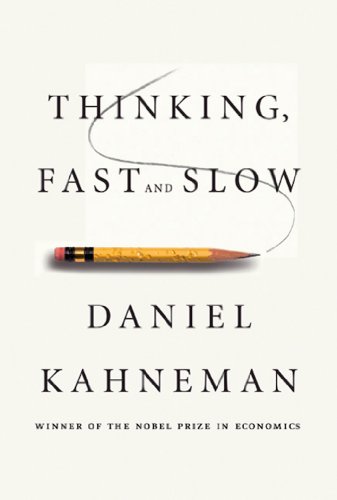

This article is an excerpt from the Shortform summary of "Thinking, Fast and Slow" by Daniel Kahneman. Shortform has the world's best summaries of books you should be reading.
Like this article? Sign up for a free trial here .
How can you measure your well-being, according to Daniel Kahneman in Thinking, Fast and Slow?
We’ll cover the steps of measuring well-being and how to improve well-being.
Measuring Experienced Well-Being
How do you measure well-being? The traditional survey question reads: “All things considered, how satisfied are you with your life as a whole these days?”
Kahneman was suspicious that the remembering self would dominate the question, and that people were terrible at “considering all things.” The question tends to trigger the one thing that gives immense pleasurable (like dating a new person) or pain (like an argument with a co-worker).
To measure experienced well-being, he led a team to develop the Day Reconstruction Method, which prompts people to relive the day in detailed episodes, then to rate the feelings. Following the philosophy of happiness being the “area under the curve,” they conceived of the metric U-index: the percentage of time an individual spends in an unpleasant state.
They reported these findings:
- There was large inequality in the distribution of pain. 50% of people reported going through a day without an unpleasant episode. But a minority experience considerable emotional distress for much of the day, for instance from illness, misfortune, or personal disposition.
- Different activities have different U-indices. Morning commute: 29%; childcare: 24%; TV watching: 12%; sex: 5%.
- The weekend’s U-index is 6% lower than weekdays, possibly because people have more control over putting time into pleasurable activities.
- Different cultures show different U-indices for the same activities. Compared to American women, French women spend less time with children but enjoy it more, perhaps because of more access to child care. French women also spend the same amount of time eating, but they enjoy it more, possibly because they mentally focus on it rather than mindlessly eat in a rush.
- Your current mood depends largely on the current situation, not on general factors influencing general satisfaction.
- Things that affect mood: coworker relations, loud noise, time pressure, a boss hovering around you.
- Things that do not affect mood: benefits, status, pay.
- Some activities generally seen as positive (like having a romantic partner) don’t improve experienced well-being. This might be partially because of tradeoffs—women in relationships spend less time alone, but they also have less time with friends. They spend more time having sex, but they also spend more time doing housework and caring for children.
Suggestions for Improving Experienced Well-being
After you measure well-being, focus on improving it. How can you improve your moment-to-moment happiness?
- Focus your time on what you enjoy. Commute less.
- To get pleasure from an activity, you must notice that you’re doing it. Avoid passive leisure time in places like TV, and spend more time in active leisure time, like socializing and exercise.
Reducing the U-index should be seen as a worthwhile societal goal. Reducing the U-index by 1% across society would be a huge achievement, with millions of hours of avoided suffering.
Measuring Experienced Well-Being vs Life Evaluations
You measure well-being and overall life satisfaction differently. Where well-being is measured by methods like the Day Reconstruction Method, life evaluation (or life satisfaction) is measured by the Cantril Self-Anchoring Striving Scale:
“Please imagine a ladder with steps numbered from zero at the bottom to 10 at the top. The top of the ladder represents the best possible life for you and the bottom of the ladder represents the worst possible life for you. On which step of the ladder would you say you personally feel you stand at this time?”
Compared to the moment-by-moment experience of well-being, this question takes a broader view of where you are in life.
Some things affect experience and life evaluation differently:
- Things that affect life evaluation more than experience
- Education
- Money: in the United States, after about $75,000 of annual income, more money increases evaluation without increasing experience.
- One theory to explain this: a higher income might reduce ability to enjoy small pleasures of life. A simple bar of chocolate might be more enjoyable when you have less wealth.
- Things that affect experience more than life evaluation
- Ill health
- Living with children
- Religion
Temperament, which is largely determined by genetics, affects both experienced well-being and life satisfaction.
- This can explain why certain changes like marriage show low correlations with well-being – it works for some and not for others.
Goals make a big difference in satisfaction.
- People who care about money and get it are more satisfied than those who wanted money and didn’t get it, or those who didn’t care about money and didn’t get it.
- One recipe for dissatisfaction: setting goals that are especially difficult to attain. (The goal that led to the most dissatisfaction: “becoming accomplished in a performing art.”)
Severe poverty amplifies the experienced effects of misfortunes.
- For the top ⅔ of individuals by wealth, a headache increases negative experience from 19% to 38%. For the poorest tenth, it starts at 38% and moves to 70%. Not only do the poor have a higher setpoint of negative experience, a misfortune increases the negative experience. The same result applies to divorce and loneliness.
- The beneficial effects of the weekend are smaller for the poor.
Measuring well-being and improving it can lead to overall life satisfaction.
———End of Preview———

Like what you just read? Read the rest of the world's best summary of "Thinking, Fast and Slow" at Shortform . Learn the book's critical concepts in 20 minutes or less .
Here's what you'll find in our full Thinking, Fast and Slow summary :
- Why we get easily fooled when we're stressed and preoccupied
- Why we tend to overestimate the likelihood of good things happening (like the lottery)
- How to protect yourself from making bad decisions and from scam artists






